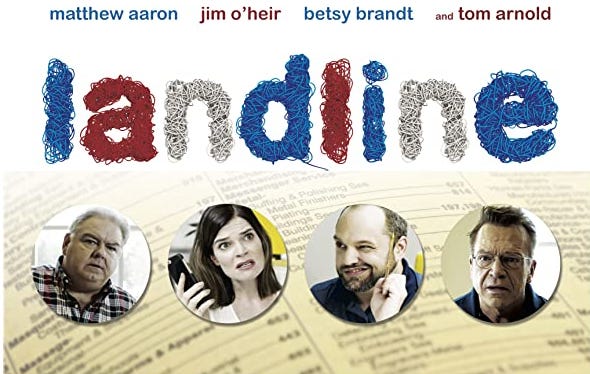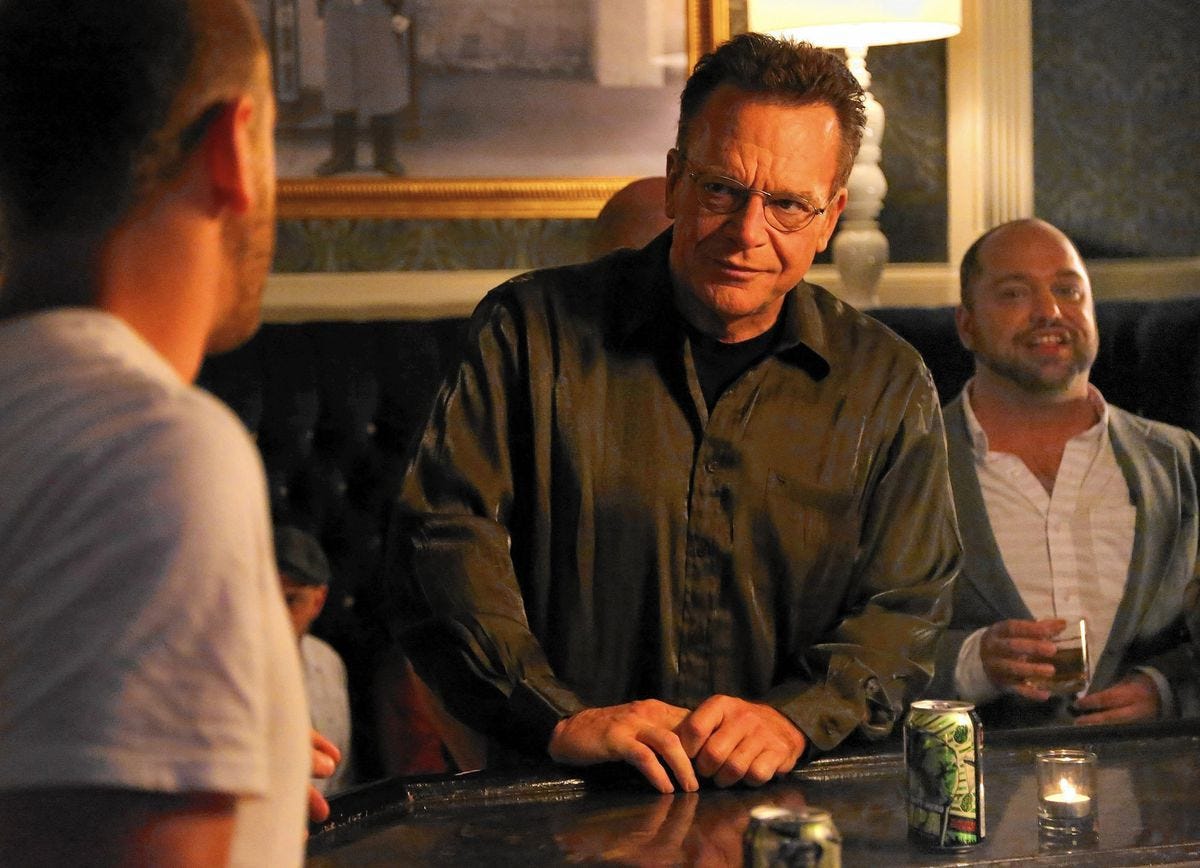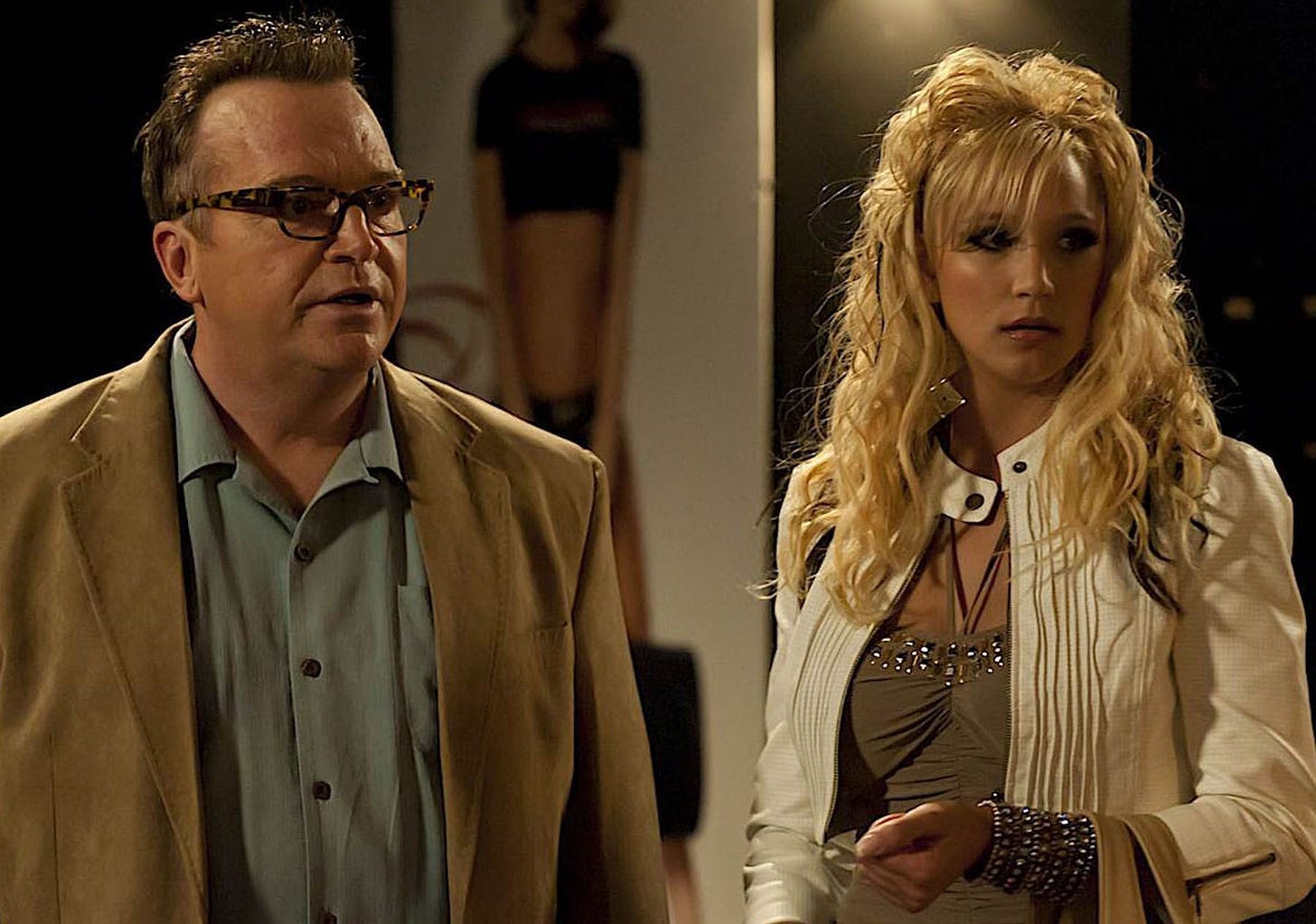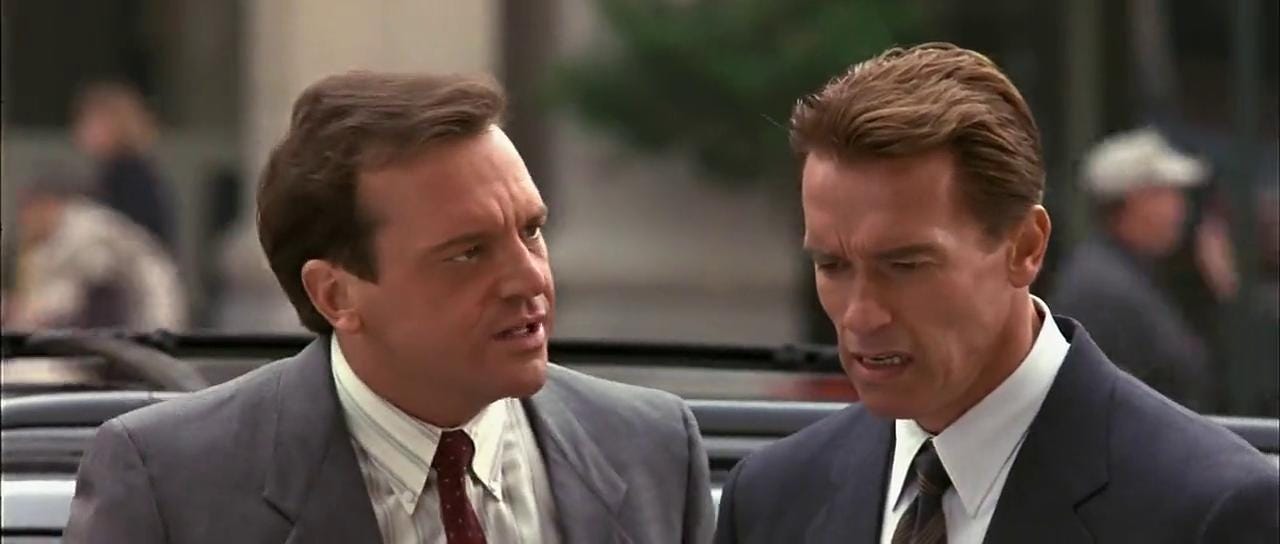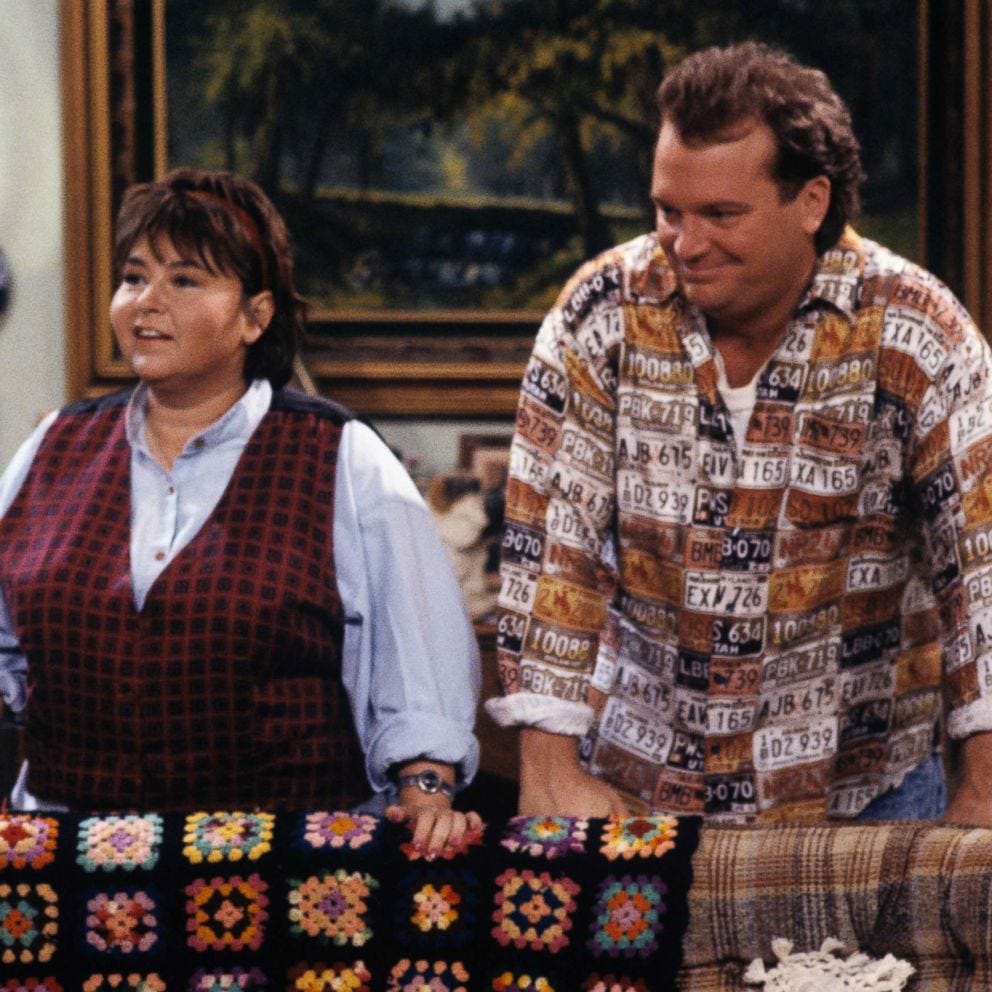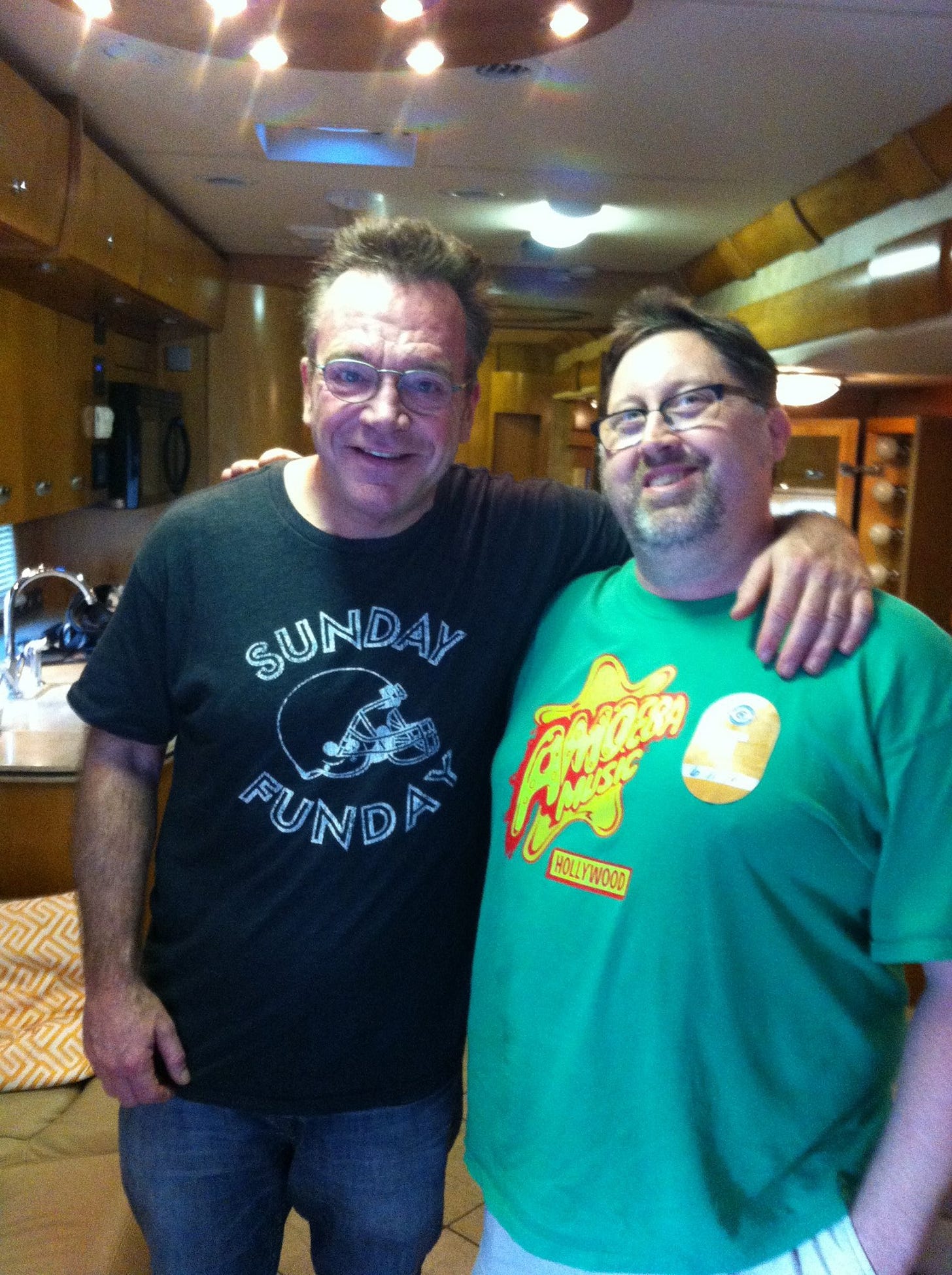Previously Unpublished: An Interview with Tom Arnold
In June 2016, my buddy Matthew Aaron was gracious enough to invite me to Chicago to visit the set of his latest movie, LANDLINE, starring Mr. Aaron himself, along with Tom Arnold, Betsy Brandt, Nick Searcy, and Jim O’Heir. Alas, I wasn’t able to catch up with Betsy while I was there - her filming schedule was slightly different than the guys, so we weren’t in the city at the same time - but I did get to interview Arnold, Searcy, and O’Heir.
Alas, I was unable to place any of those three interviews with a paying outlet. Even just reflecting on it now still makes me grind my teeth in anger, because I knew for a fact that all three of these interviews were extremely entertaining and would’ve been a great read for whatever outlet opted to run them. That said, I’d done all three interviews with an eye toward one particular outlet, and it floored me when they didn’t want any of them, so it definitely inspired me to draw a line in the sand: since then, I haven’t done any interviews for that outlet without having confirmation of placement beforehand, and I never will again. Plus, at least now I can share the interviews with you via my Substack newsletter.
If you didn’t see my interview with O’Heir when I posted it late last year…
And now, buckle up and brace yourself for the one and only Tom Arnold!
For most people, Roseanne was the first place they saw you, but was that actually your first time in front of the camera?
Tom Arnold: No, I did a Showtime special in... I think it was 1986. And then in 1987 I did a Roseanne special where I played her husband. We were friends then. And then in 1988, Roseanne was my first network television show.
Now, your stand-up act... Am I right in understanding that it was called Tom Arnold and the Goldfish Review?
Well, my original stand-up was Tom Arnold and the Fabulous Goldfish Review.
Oh, okay. And then you toned it down?
[Laughs.] Well, what happened was that I was going to the University of Iowa, and real comedians from Minneapolis would come and perform, and I would open for them. And all my friends would go see me, and we would drink everclear punch - which is powdered Gatorade and everclear, and that's it - and we would be wasted, and they'd all watch me, and I'd do my act, and then they'd get up and leave and not watch the real comedian, the headliner. And one day one guy said, "Hey, I own a club in Minneapolis. If you'll get your friends to stay, I'll give you a job at my comedy club." And I was, like, "Oh, done!" So, of course, I quit college and moved. I had a hundred bucks to my name, I got on a bus with a trash bag full of clothes, went to the comedy club, and said, "I need to find a place to live close to here, because obviously I don't have a car or a driver's license." And he's, like, "Um, yeah, you don't need to live close to here." Because the job was only one weekend for fifteen dollars. I thought he offered me a full-time job! I was, like, "Fuck!" So I walked to the nearest bar, got a job as a bouncer, and ended up living there.
Now, the second time I performed, Joel Hodgson came down, and he was a hilarious comedian. He'd been on Saturday Night Live and [Late Night with David] Letterman, and...I guess you could call him a prop comic, but he was so interesting. And he ended up staying at my house with me and my six roommates to save his money, and I just worshiped him. And he told me, "Tom, you need to be different. It's really about having a different voice than other people." And I was in my bedroom, and I thought, "What is different about me?" And I looked around my room, and I had some goldfish sitting there. "I'll put that in my act! I'll be the goldfish guy!"
So I wrote an act based on these goldfish and their tricks and stunts, basically being a junior Joel Hodgson, down to copying his cadence, and one goldfish did an impression of the Pope, and I became known as the goldfish guy. And it did differentiate me. People didn't know my name, but they'd go, "Oh, the goldfish guy!" Because a big part of my act was doing this weird, stupid stuff with these goldfish. But at some point you have to find your own voice, and I found out quickly that people in Minneapolis seemed to get madder if something bad happened to the goldfish than the people in Iowa. Like, people were protesting, because there was fire involved and...a lot of alcohol. [Laughs.] And I realized, "Yeah, I'm gonna have to get a real act." But it certainly got me going, and...it was something different.
You kind of breezed past it, but I'm going to need to know more about the goldfish that did an impression of the Pope.
Yes, one did an impression of the Pope. I got him out, and he had a Pope hat! And one was a sword-swallower. You can imagine that. One disappeared. I made it disappear by swallowing it, obviously. And the finale was one that rode a motorcycle through a ring of fire, I had a tennis racket, and I put pipe cleaners around it, and took lighter fluid and lit it. And this was where it always got dangerous. I had somebody come out of the audience and hold it, and I had this little motorcycle, and I put a fish in a condom, and then I shot it through there. A couple of times I caught the curtains on fire, I was so drunk. But people, I found out, care a lot about fish. [Laughs.]
Also, it was a problem because when I started doing one-nighters, especially in the upper Midwest, it was cold, so I'd go and I'd perform, and then I'd leave 'em in the trunk, and then I'd stay at the party late, and they'd freeze. And if I couldn't find another fish store in the next town... Several nights, I had to do shows with dead fish, just keeping them swirling around, pretending they were alive. And that's a pain in the ass. Although goldfish are pretty hearty, and they did come back to life a couple of times after being frozen. But I eventually moved on from that and developed an act. But it was a big part of my life for quite awhile! I even had a theme song! You remember "Tijuana Taxi," by Herb Alpert? [Singing.] "These are the goldfish / And my name is Tom / These are the goldfish / I don't know how we're gonna get along / The Fabulous Goldfish / Yeah, we've got action and suspense / Danger and drama, it's true / They're the kings of the aqua-comedy world / And they call them the The Fabulous Goldfish Review!" And it went on. It went on too long. It was so stupid. [Laughs.] But it was 35 years ago.
But the advice that Joel gave me about finding your voice is the best advice that anybody can give. It's advice I still give. Because comics basically do versions of the same material, but certainly the ones that I like... Well, take Sarah Silverman. I love her voice. There are so many people. Because they're different. Their delivery's different or their voice is different, but there's just something unique about them. And that's why there'll always be new, great comics. Even if we're all basically talking about relationships or this or that or whatever, there's the voice. The different voice.
How did you end up on Sons of Anarchy?
Well, I'd done a movie with Katey Sagal where she played my wife, and Kurt Sutter and I are buddies, so I know him. So he wrote me in, and...I think he thought, "What is the weirdest thing I can do?" [Laughs.] I loved it. I love the show. It's one of those types where you're a super fan of the show. I just did Trailer Park Boys, which I'm also a super fan of. Since season one I've been a fan. Which is sort of rare, because it's one of those sort of secret shows.
But I loved Sons of Anarchy...until the day I died. [Laughs.] I found out that morning. Kurt's, like, "Yeah, you're dying today." I'm, like, "Oh, fuck. How?" He said, "You'll be shot 40 times." I was, like, "Oh, fuck! Okay..." But, you know, everybody dies on that show. I had a argument with Kurt. I was, like, "I don't think the audience is gonna buy that Charlie Hunnam beats me up every show. It's just not realistic. In real life, that would never happen." But he's, like, "No, he's gonna beat you up." But I loved all those guys. They were a very tight group. They did something interesting, and coming from where I came from, they were very true to that world. I know a lot about that world. My sister was very involved with a motorcycle club...and served many years in federal prison because of it. By the way, Charlie Hunnam? British. He's got a British accent!
Yeah, he used it when he starred in the show Undeclared.
Yes! Judd Apatow had something to do with that, right?
Right!
Yeah, so many great people came from that whole group that started on Freaks and Geeks... So, anyway, yeah, that's how I got on Sons of Anarchy, and I liked it!
So what’s the story on how you got your role in True Lies?
True Lies was weird. People are always, like, "I just need to get an agent." Well, the real truth is that an agent is good on two occasion: their first day and their last day. In between, you've got to get your own work. And in the summer of '93, my agent at William Morris, as it was called at the time, apparently thought we were leaving and said, "Oh, Jim Cameron wants to meet you for this movie True Lies." I'd known about the movie, because major actors were auditioning for the part that I would end up playing, so I knew it was bullshit. So I said, "What do you think, that we're leaving William Morris? That's bullshit. It's a mercy meeting at best. I'm not doing it." He's, like, "Read the script at least, please."
Jim Cameron sends the script over, and there's a guy with a gun holstered literally standing next to me while I read the script, and then they take it away, because it's a secret. But by page 12, I knew that I would never get the movie, because the part was too big. I hadn't done anything! So I said to my agent, "Is there a bartender that works half a day? Something realistic." He said, "No, he wants to meet with you." I almost cancelled, but honest to God, I wanted to be able to say that I'd met Jim Cameron. That was the whole reason. Well, also, when I worked at the Hormel meat-packing plant, I did dream - a lot! - that I was best friends with Arnold Schwarzenegger. [Laughs.] You know those dreams when you have when you're just so drunk? Well, look, if you work on the kill floor of a meat packing plant, you will get drunk every night. But eventually that crazy dream came true!
So I go out to meet Jim Cameron at his house, he's nice to me, and then he says, "Okay, do the audition scene." I said, "Yeah, I didn't learn the audition scene." He says, "What?!" I said, "Well, because I know I'm not getting the movie, so...why even try?" Which is a lesson I want to teach my children. [Laughs.] But he sighs, and he goes, "Well, since you're here, just read it off the paper. It's three pages." I read it one time. He's, like, "Get Arnold down here." Again, up until then, Arnold Schwarzenegger was the guy from my dreams at Hormel, an bodybuilding star of the world, an action star...and now he's walking down the stairs. And he comes up, and we do this scene together one time. Sometimes in life, something clicks. Well, something clicked there, I tell ya, and it worked. And Jim Cameron said, "You got the part, Tom." I was, like, "Holy shit!" And he goes, "But don't tell anyone for two weeks." And I was, like, "I swear to God, I won't tell anyone the best news of my life for two weeks, okay? Done! Now, I need to go to my car immediately and make some phone calls."
So I tell everyone. No one believes me, including my wife, who says, "You're back on drugs, right?" [Laughs.] And that night, I remember looking in my own mirror before I went to bed and saying, "That didn't happen. Why would he ask me to wait two weeks to tell anyone?" And the reason - and he didn't want to hurt my feelings, so he didn't tell me until after the movie came out - was that he had to go to Fox Studios, because at the time it was the most expensive movie ever made - and say, "Hey, great news: we can start filming True Lies! I found the third guy after Arnold and Jamie Lee Curtis!" And they're, like, "That's great! Who is it?" He's, like, "It's Tom Arnold!" And they're, like, "That is terrible news!" [Laughs.] Jim Cameron's, like, "Why?" And they go, "Well, don't you read the tabloids? He's a crazy person!" And Jim Cameron's, like, "No! I don't read the tabloids! But I wrote this movie, and trust me: he's the guy." And they're, like, "Well, we're sorry, but we cannot approve Tom Arnold for this movie." And Jim Cameron, to his credit, and I will always give him credit for this, said, "No, I'm sorry: I really wanted to make this movie at Fox, but now I'm going to walk across the street and make it at Paramount." And they're, like, "Slow down..."
Anyway, we make the movie, I make the Fox guys love me, they come to the set every day, and I high-five them. They actually hate me, but the movie saved my career, because Roseanne filed for divorce in April of 1994, everybody in my business said, "You'll never work again, you rode her coattails, you'll have to move back to Iowa." And I was, like, "They're right!" [Laughs.] "But I got some great stories, I worked for six years on one of the best shows ever on television, I will tell my grandkids about that, and...that's not too bad!" And Jim Cameron's, like, "Fuck those people: on July 14, all that changes."
And it really did, because - not that I haven't fucked things up since - that movie and that opportunity saved me, because then I could say that at least once, for one moment, I did something on my own. So I'm very grateful. Although it's funny, because my first job is writing, producing, and acting on the number one show on television, and then my first real movie was a huge, successful movie. So I assume that everything after that is gonna be the same...and it's not. [Laughs.] But at least I got to experience that, and I hope I appreciated it, but...things just happen, you know?
Well, that's Hollywood, right?
Yeah, but I think if I'd known the magnitude of going from being a stand-up comic in the Midwest to basically being in control of this major show, hiring writers, letting people go... What I really did was, I had Roseanne's back. I knew how to be her friend, I knew she was unhappy, I knew they were fucking with her, you could see it. I just said, "I don't know what's going on, but I've got her back 100%. You're either with her or you're out of here." So I brought a bunch of guys out from the Midwest, some of my roommates who'd never written on TV before, and I made a deal with the other executive producer to hire old pros that he wanted, so we split it up. We always had 10 and 10, and it worked. I had a lot of respect for all of the writers, and I felt like I was taking care of Roseanne, too, because she didn't have to deal with it. And at the end of my tenure, she would show up on Monday and read the script for the first time, and she and the other actors would do their thing during the rehearsal and fix it, because we had amazing actors. It was a good system. I learned to do a lot of things just by having the job. Suddenly you have all this power, and you have to figure out how to do it right.
Do you have a favorite episode from your work in front of the camera for Roseanne?
Well, the episode called "P.M.S. I Love You," that was based on what was going on in my personal life and the movie Apocalypse Now. [Laughs.] You know, I have John Goodman under the fan in the bedroom going, "The horror, the horror..." There were so many good episodes. As you know, in the writing room, the person whose name is on the script isn't necessarily the only person who wrote the script. You split them up. I always believed that you gave everybody one to two scripts, because you get paid more. Usually everybody gets credit for two scripts. But stories are specific.
The way I worked was, I really respected the head writers. They each worked for two years, which kept the show fresh to me. Some did not want to leave, but they left. But everybody was treated more than fairly. We'd talk about stories - maybe I have an idea, maybe Roseanne has an idea, maybe another writer has an idea - and we decide, "Let's do this story, give me an outline," and when I'd see an outline, I say, "Okay, go to script." And there'd be a draft, and then we'd do a second draft. But we'd work very closely together, and it was constantly trying to improve or go someplace with it. And if there was something that was edgy or controversial which seems lame now, like the lesbian kissing, that was up to me to handle. And the way I handled it was very simple: I turned in one copy of the show. They wanted two copies - one with the thing, one without it - and I'd turn in one and say, "Air it or don't air it." That was the way to handle it.
And I have to say, Carsey-Werner immediately backed away. Immediately. They didn't fight for control of the show. They're very smart: they knew that the show was a money machine. The best moment I had... I'm still friends with Tom Werner, and he had the best line ever. Roseanne was mad about something and went to his office, and she didn't feel that she was getting the respect that she deserved. She goes, "I see no reason why I should continue doing this show. I cannot think of one reason!" And Tom Werner goes, "Well, I can think of a hundred million reasons." And I remember Roseanne and I looked at each other, and I said, "That is true. You are going to make a hundred million dollars for this." [Laughs.] "I mean, that's something." Anyway, it worked out for everybody. They were smart: they never interfered, they just said, "If that's what you want, then that's what we'll do. Just get the show done." Roseanne didn't want them on the set, so they weren't. They're awesome. They've really got the best attitude. They're so smart. But I think their genius was finding these people, like Roseanne and Cosby and whoever, the different people with specific comic voices and getting their shows off the ground.
But Roseanne started with a chip on her shoulder because she did not get a "created by" credit on her own show. I was her friend at the time, and I was not savvy enough to understand the mechanism of how the Writer's Guild works. There was some sleight of hand, and she was not taken care of by her agent or manager. A guy named Matt Williams got a "created by" credit on her show, which is a show based on her life. At least they should've split it. Even if he wrote the teleplay, at least they should've split it. But they didn't, and people told her, "Oh, this is outrageous!" And there is a residual that goes with that, but it's mostly about respect. So she was mad from the first show on. Once you feel like you've been fucked over, you've always got a chip on your shoulder. It can be good for comedy or for playing sports, but it also can be exhausting. But she was right. She developed this act in the comedy clubs by living her life, and in one swoop, this guy took full credit for it. But we both just didn't understand how the business works. You expect people to look out for you, and someone didn't look out for her, so she had that chip.
Okay, I’ve got to ask about this one: you were in the film Exit Wounds.
Was that with Steven Seagal?
It was. Someday I feel like I might get a positive Steven Seagal story, but it hasn't happened yet.
Well, you know, he's very sensitive...
Well, I'm not The National Enquirer, so if you don't want to talk about him...
No, I don't care what he says. I'll talk about him. [Laughs.] Yeah, my trailer was between his and DMX's trailer, if you can imagine. I found it a bit amusing. Anthony Anderson and I had a really good time at his expense. He takes himself very seriously. Now, Jet Li is about five foot tall, his hands are, like, three inches long, and he can kick everybody's ass that you've ever met. He's, like, a legitimate action person. He's the judo champion of all China. Steven Seagal, on the other hand, is big. His wrists are huge. But if he lifts his leg, like, four inches, somebody has to finish the kick for him! And they wanted him to get a hair piece. They were going to get him a $100,000 hairpiece, but he had too much pride for that, so he literally colors his hair in with a black sharpie. And you can see it on the big screen! There's a half-inch. So if you think I'm gonna let that go and not make fun of him...
But here's my Steven Seagal story. The director, Andrzej Bartkowiak, a very nice guy, he likes to shoot with six cameras at once. He's a great action director. He was a great cinematographer before that. But Steven Seagal doesn't like to rehearse. So we're on a houseboat, and there's a door on one end, and there's a door on the other end, because sometimes the houseboat is coming in from this direction, sometimes it's coming from that direction, but however you pull up from the dock, you want to be able to get off, so there's a door on each side.
Anyway, Steven Seagal's sitting here, me and Anthony Anderson are sitting there, and the director comes in and says, "Please walk through this scene one time." And Steven Seagal proceeds to argue with him for 45 minutes about how he doesn't rehearse. The director finally gives up, and he says, "Roll cameras!" And Steven Seagal gets up from his chair, and he says... [Doing a Seagal impression.] "I'm gonna go down and kill your whole fucking family!" And then takes a step this way, toward this door. Now here's the thing: he has argued so long, he has forgotten that the other door leads to the dock, and this door leads to the ocean!
As I see Steven step towards that door, I look at Anthony Anderson, and I'm, like, "Should I tell him?" And he's, like, "No!" [Laughs.] And he takes one more step, opens the door...and disappears into the ocean. And I swear, the black sharpie ink... You could see it coming to the surface! I started trying to fish him out, but he's wet, so he's super heavy, and he's got this muumuu on, and I can't lift him out, so Anthony Anderson has to help me.
So that's my Steven Seagal story. And it reminds me not to be an asshole, because instead of taking 20 seconds to block this scene, he argued for 45 minutes, he went out the wrong door, and he ended up in the ocean. So, yeah, he's very sensitive, Steven Seagal... [Laughs.] But I gotta tell ya, that movie opened at #1. Joel Silver gave him a chance, Lots of people were giving him a chance to do stuff, and for a while he had lots of opportunities to do stuff. Maybe if he had done things a little differently... I mean, like I'm one to talk! But people still talk about him. I mean, I'm sure they do. Maybe in Russia.
You brought up Jet Li as a point of comparison a minute ago. Of course, you, DMX, and Anthony Anderson were all in Cradle 2 the Grave with him.
Yeah, Jet Li... Oh, I love that guy. I saw something there... There was a fighting cage built, like the MMA, and as they're choreographing the fight scene where Tito Ortiz and Hector Echavarria are fighting Jet Li. Well, at some point, Jet Li's choreographer, who's from China and only speaks Chinese... They're blocking it out, and they say, "Let's try it. Let's do some contact. Like, 75%." And the two American guys are, like, "Really?" Because he's half their size. They went at it, and they could not get their hands on him. They were tougher, but he kept getting behind both those guys and getting their arms. Privately, they said he was the toughest guy ever and that they were shocked that they couldn't get their hands on him...and they were going at it! Yeah, I really liked Jet Li.
I've got to ask you about The Jackie Thomas Show, which I thought was very underrated.
Thank you for saying so. I loved it, and I think it was, too. That's one thing I'd like to see on DVD or streaming. That's a case where there was a lot of build-up, because I followed Roseanne, so I had the best lead-in you could have. That's the good news and the bad news, because people are going to say whatever. At the end of the first season, even though we were the #1 new comedy, they didn't feel it was strong enough, and they wanted me to change the content of the show to make it that Jackie Thomas wasn't an actor but was actually a butcher in Iowa, to make it more like Roseanne. I said, "No, that's not really what the show's about." And then I remember a woman named Lucy Salhany, who ran Fox, which had just started, she offered to take it as-is, a three-year contract. And I said, "Fox isn't even a real network!" And I passed. I wouldn't have had to make any changes, I could've done whatever I wanted creatively... It was the dumbest thing ever. But I loved that show. We had Paul Feig, who's done very well as a director, and a bunch of other really great people on there. I liked doing that character. I also like the people who liked that show. They have good taste. [Laughs.]
Well, thank you. I should say that I also remember it fondly because of Chris Farley being on there.
Oh, yeah, well, Chris... We met him because he did an impression of me on Saturday Night Live, which was so funny, and we were going out to host the show, and Lorne Michaels really wanted me to spend time with Chris. He said, "I think you guys have some stuff in common." He knew I'd gotten sober, but we had a lot in common, with both of us being from the Midwest, so we bonded. Chris did his best. We had him on Roseanne, he did my HBO specials that Judd Apatow and I wrote, and when we did The Jackie Thomas Show, he played my brother. We genuinely grew close. He was the best man at one of my weddings, and the only part of the wedding that I'd watch was his toast. Everybody always says how funny people were after they die, but he really, genuinely was insanely funny. He had a different gift than anybody else.
Robin Williams' gift was different. Robin Williams as a human being was different. If you said to Robin Williams at three in the morning, "There's a guy who wants to kill himself," he wouldn't even ask the guy's name. He'd say, "Let's go get him!" But Robin was also soft-hearted. You can be a good guy and still have access to being an asshole. Some guys just don't have that. They're just too good of people, and life is extra hard for them.
Chris's thing was a little different, because Chris thought he could always get around it. I get both of those things. When Chris died, he was going to rehab the next day. Again. I remember the moment he died. His brother was on my show at the time, which was called The Tom Show, and we were doing a funeral scene. And even though of course you could see it coming, I was totally shocked. I got a call from a reporter, who called my dressing room, and he said, "I'm sorry about Chris." And I actually have a brother named Chris, but I knew he meant Chris Farley. So I found Kevin and... Well, like I said, I was still completely shocked.
But some people's lives, they pack a lot of living into them, and I just don't think Chris could see... [Hesitates.] It's usually not one thing. It's, like, "Oh, this movie isn't working as well as that one did, and my personal life isn't this, and I'm never going to look the way I want to look..." And then one night there's just too many things. I think that's probably what happened to Robin Williams: that night, there were just too many things.
With Chris, a lot of people helped him, he tried really hard, and...it was what it was. I mean, who am I to say? But the funniest thing with him was when he'd say, "I'm not on tonight, Tom. I don't want to entertain anyone tonight. Let's just relax. Don't expect me to be on." And I'd go, "Okay, I get it!" And the second we'd want into a place, I'd suddenly hear someone screaming [Doing a pitch-perfect Chris Farley impression.] "Well, hello, ladies..." He was that guy. He wanted to be anonymous, but the second he was anonymous, he didn't want to be anymore. He was somewhere between the guy who lived in a van down by the river and the guy who hosted the show where he interviewed Paul McCartney. Actually, he was either one or the other. There was no in-between. And that's sort of what you've got to get to.
I will just say that I don't know any fellow pop culture journalist who hasn't cited Chris's Paul McCartney interview as a point of reference at some point.
That's true.
In fact, there was literally a point where a buddy of mine and I, we had an opportunity during a TCA panel to ask Paul McCartney questions via satellite, and I said, "I'm legitimately concerned that I'm going to have my Paul McCartney moment with Paul McCartney."
Well, it'd only be human, wouldn't it? But journalists aren't supposed to be human. [Laughs.] In fact, before we go, I just wanna tell you real quick my story. One time Bill O'Reilly was doing his show from L.A., and he asked if he could use my makeup room at Fox. I said, "Of course!" So we're in there, and Clint Eastwood stuck his head in and said "hello." I was, like, "Fuck!" And he left, and I said to Bill O'Reilly, "Oh, fuck! Clint Eastwood, man!"
And all of a sudden Bill stiffens and he's, like, "Yeah, he's nice." I'm, like, "So what if he's nice? It's fucking Clint Eastwood!" He's, like, "Tom, he's just like you and I: a human being." I said, "But... Bill, aren't you a fan?" He goes, "No, I'm not a fan. I'm a journalist, Tom. We're all the same." I just looked at him, and I'm, like, "You're not a fan of anybody?" He's, like, "No!" And I go, "Well, you're missing out, fucker." [Laughs.] First of all, I knew he was lying, but for him to actually try and tell me that he didn't think it was cool that Clint Eastwood came in and said "hi" to us... I mean, can you imagine not being a fan of anybody for any reason? That's just nuts.


